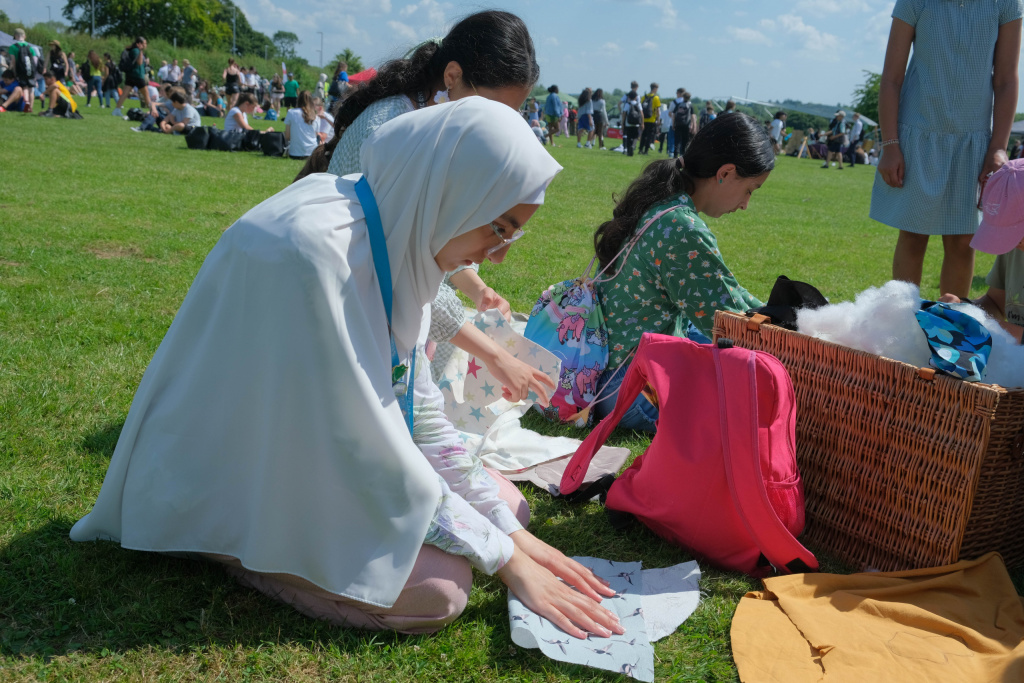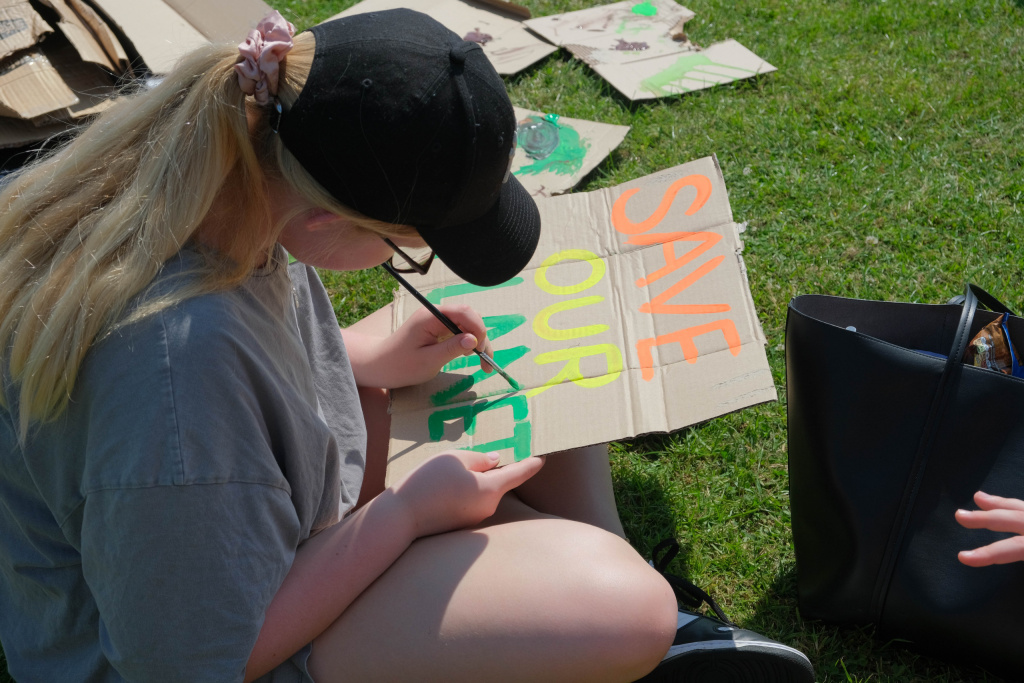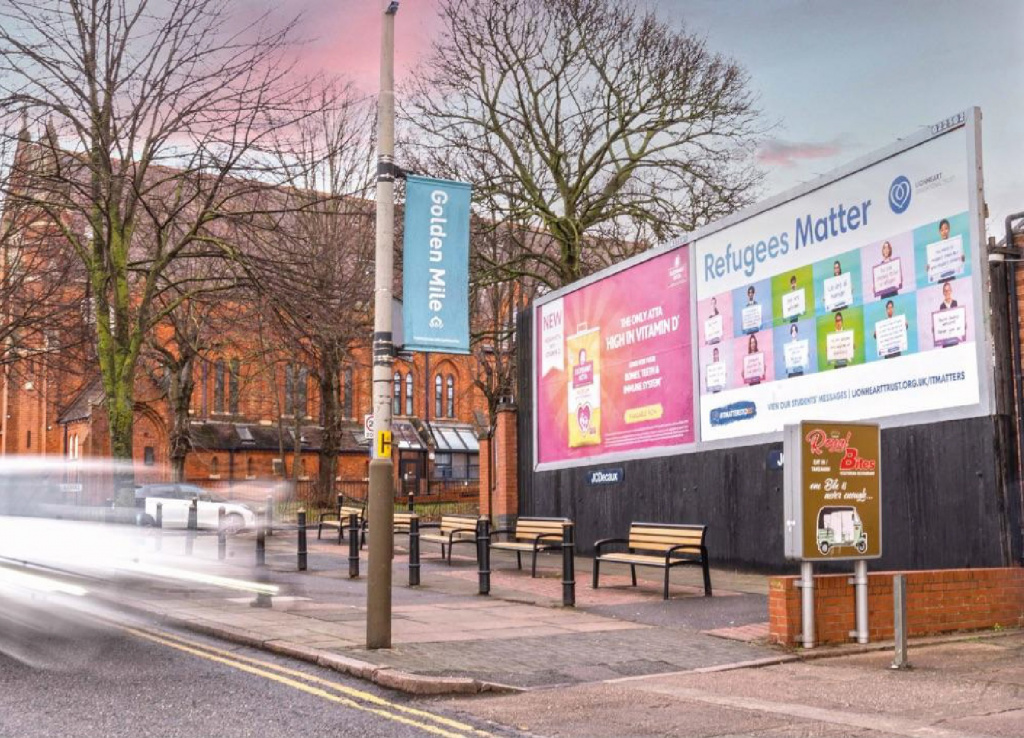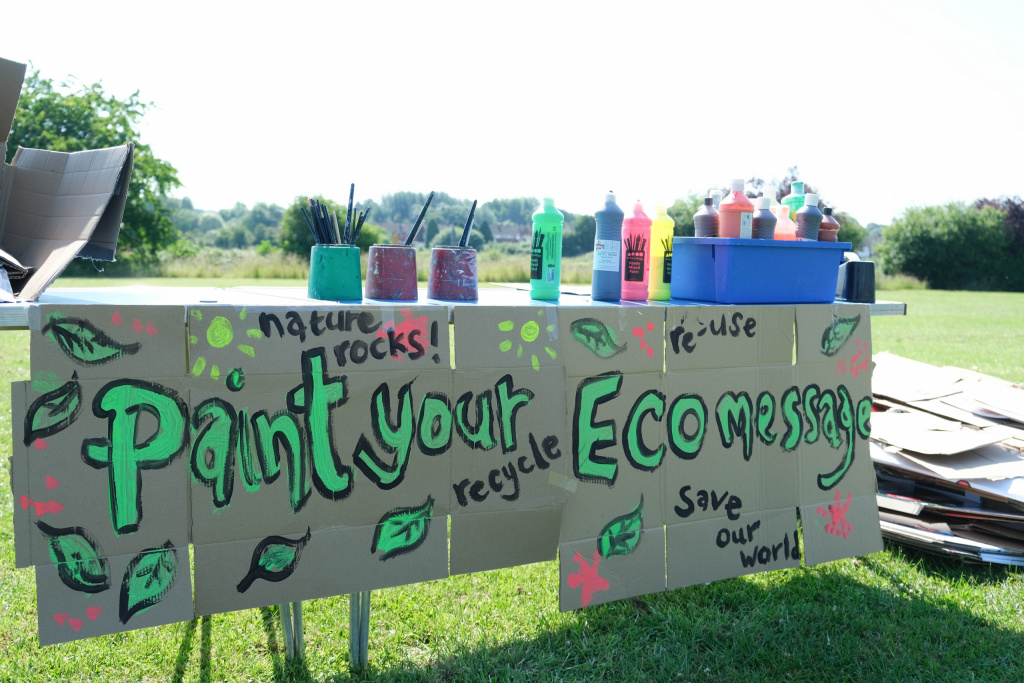
In an increasingly polarised world, the need to encourage open and healthy dialogue is more pressing than ever before. The impact of the pandemic lockdowns, major global events and unresolved conflicts, coupled with ever more sophisticated social media algorithms, has meant that young people have never been more susceptible to falling down rabbit holes of disinformation. In a world full of opposing views and complex matters, it can be challenging for teachers not only to navigate these narratives in the classroom but also to give students a platform for open and respectful discussion. This also includes the opportunity to transform views and beliefs into meaningful social action.
At Judgemeadow Community College, we knew we needed to go beyond classroom debate, and so – together with Lionheart Educational Trust – we introduced a whole-school ‘Global Issues’ curriculum. sapient.
Where it all started
Like so many schools around the country, our students are always engaged with the world around them; this became even more evident in 2021 when violence broke out between Israel and Palestine. This, of course, coincided with restrictions in place amidst the COVID-19 pandemic. We were met with feelings of confusion, frustration and angst among students, so we wanted to provide a safe space for them to explore and talk about these issues.
However, this was not a topic that we ordinarily would have covered in the curriculum. We knew that the role of teachers when having these conversations would be complex; you need a controlled environment with fidelity to facts and well-informed context while delivering it in a way that is non-partisan and de-politicised.
In addition to this, we wanted to give students an outlet to express themselves. We very quickly recognised that our students were compassionate and were crying out for the chance to make an impact on the causes that mattered to them.

We knew our curriculum needed to be broader and deeper than ever before. We wanted to ensure we taught our students to understand how they can make a difference; and this started with how to read wisely, how to talk appropriately and just how much words matter. We also wanted to focus not only on how they should listen but how to really hear. We wanted to encourage them to be hopeful, to be upstanders and to channel their passion and energy in the battle against injustice to make positive change for the future.
Therefore, together with a handful of staff across Lionheart Educational Trust we constructed and developed our Global Issues Curriculum. This idea was spurred on by American activist Marian Wright Edelman’s words: ‘Education is for improving the lives of others and for leaving your community and world better than you found it’.
The Global Issues Curriculum
Fitting into our personal development curriculum, Judgemeadow – and all schools across the Trust now – dedicate one lesson per term to a series of topics and themes.
These lessons typically involve around 30 minutes of input from the teacher, followed by questions that spark debate and exploration among the class. We take the issues that matter to our young people and reframe topics with facts, debunking sensationalist approaches and social media tattle. There is a centralised resource available to our teachers which is evidence-led and all links are carefully presented so that everyone has the same authenticity. There is also a ‘voice-over’ activity to help manage the narrative and provide colleagues with as much support as possible when having these discussions.
Lessons then culminate in a united show of social action – giving young people the opportunity to make their voices heard, take action and make meaningful change. It’s really important for us to go beyond discussion and truly inspire students, ensuring that any action is respectful and compassionate.
This has been a key takeaway for us; whilst creating reliable resources is undeniably important, the value of taking social action has been of equal value to us. This activity has been pivotal in giving our students the opportunity to put what they have learnt into practice and understand the impact they can have. Examples of social action that our students have taken part in so far include silent vigils, penning letters of hope, visiting food hubs, speech writing and taking part in a rally.
Since its implementation, we have explored a variety of topics including the refugee crisis, women’s rights, the conflict in Ukraine, climate change, social media and mental health, poverty and food insecurity and more.
One of the first topics we explored was focused on Afghanistan and the plight of its people. As part of this, we began by exploring the history, discussing the conflict and learnt about victims. We wore green from the flag to represent hope and the future, and we raised money for UNICEF as part of the social action.
We then studied the refugee crisis, looking at what a refugee is and what an asylum seeker is and examined misinformation relating to both. The students felt inspired, so we held a silent protest with placards and put a short video together. We booked billboards in both the north and south of Leicester with displays designed to inspire the message ‘it matters to us’ in relation to the refugee crisis.

More recently, we have focused on the gobsmacking realities of climate change; realities like losing 1.2 trillion tons of ice each year and the fact we can now attribute natural disasters to human-driven climate change with certainty. As part of this, we explored the responsibility held by the world’s leaders through learning about the COP26 summit. We made pledges to fight against climate change as individuals and collectively as schools, and we went on vigils and marched to show support for our world.
Their voice matters
It’s important for us to ensure the topics we discuss are the issues that matter most to our young people. The same goes for our parents. We invite students’ parents to come along to social action events and also welcome their feedback on topics covered. One of the parents we heard from was keen for us to include aspects around social media and mental health and so we made sure that this was incorporated into the lessons.
In the near future, we are looking to create a parent ambassador group across each school so that we can have regular touchpoints with parents and share plans for our global curriculum more widely, ensuring that any learnings can be amplified and explored beyond classroom discussions. These subjects can naturally be complex and sensitive in nature, so it is both helpful and important to bring parents and carers into these conversations.
Our lessons have made a big impact on our staff too; learning about these issues is mutually important. One of our teachers even stopped eating red meat after learning about the impact it has on our environment. At all levels, the Global Issues Curriculum gives students (and others) a voice, helps them involve themselves in the wider community and empowers them to interact with people and positively inspire action and change.
It’s also important for us to be current and reactive where we can. An example here that proved successful was our celebration of International Women’s Day. Back in 2023, we saw a rise in misogynistic hate speech advocated by the likes of social media personality Andrew Tate, the death of the young Iranian woman Mahsa Amini in the custody of the so-called ‘morality police’ and the harrowing status of Afghanistan’s women and girls who are being denied an education, employment and freedom. We felt that it was critical that damaging gender discrimination was studied in our classrooms.
Our teachers shone a light on these stories to embrace equity, remove barriers and promote true inclusion. Pupils then engaged in oracy workshops to research, design and develop speeches. Winners were chosen to represent their school at a trust-wide speaking competition, ‘Lionheart Speaks’, where finalists performed in a public theatre in Leicester to parents and the local community.
Building a lasting legacy
This year, we have continued to explore one topic per term for a total of three different issues.
This term we have, once again, focused on climate change. Our students are very involved and interested in green issues – so much so that this is the third year that climate change has had a spotlight within the Global Issues Curriculum. As part of this, we provided a lesson exploring the steady rise in global temperatures causing extreme weather events, including hurricanes, droughts and torrential floods which are causing worldwide crises. We also looked at the melting of polar ice caps, the rise in sea levels, threats to coastal cities and low-lying island nations and the risks of extinction for animal and plant species.
We also approached the idea that climate change is making the gaps between the rich and the poor even bigger. Those worst off are often the most affected by climate change, with more poverty, food insecurity and displacement than ever.

We then tasked students to think about the ways they could help address the issues, considering ideas around avoiding the purchase of plastic products through to being more aware of what individuals are using and wasting, and how we can really contribute to help fix the climate crisis.
The social action that followed was a Trust-wide Eco Rally, where Judgemeadow students took part in a whole host of activities to shine a light on tackling climate issues within the community. This included speeches, demonstrations, placards, letter-writing to political leaders, stalls sharing information on energy saving and growing food as well as participation from charities. Students also made bee bombs (wild seeds set into compost to promote biodiversity) as well as using recyclable materials to build various creations including sculptures, flower arches, hedgehog shelters and birdhouses.
The day was a huge moment for our collective action and gave us the opportunity to show the wider community that we really do care about our planet and the future lives of everyone who lives there.
Looking ahead
As the curriculum has been rolled out across the Trust, we have had to adapt our approach to suit the needs of our primary academies as well as our secondaries as we all explore one theme centrally. This has of course meant ensuring materials are age-appropriate and that topics are explored in a way that pupils will be able to comprehend. For instance, during the refugee-focused unit, our primaries used a children’s story focusing on the idea of an empty chair – making the learning appropriate to the context.
It’s also important for us to find ways to adapt our lessons to each of the communities served by our schools. As such, we’ll continue developing our curriculum so that it remains a springboard for positive representation, ensuring that we avoid the need for teachers to navigate outdated narratives reiterated in outdated curricula.
Engagement and participation in the lessons and social action have been extraordinary from the get-go, both from staff and students. Visitors walk into Judgemeadow and immediately see the placards and postcards written by our pupils on display. They’re able to see first-hand the work being done both in and outside the classroom and the commitment we have to fulfilling our role both as educators and as humans, working to build a better community and fighting to improve the lives of others.
We are so proud of the work that’s been done, and while of course implementing approaches like this within the curriculum can be challenging – particularly owing to the increasing and competing demands on resources and time – investing and communicating that vision is well worth it.
As educators, it is always our goal to ensure that our students not only fulfil academic requirements but flourish in their socio-emotional development. We want to empower them as young people, rather than allowing them to believe that only adults can make a difference in the world. We want to equip them with the real-world skills they need to thrive. Key to this is the ability to research the subjects that matter and discern fact from fiction. We also want to imbue them with open-mindedness, pride in their community and the confidence that their actions can have an impact on those around them.
It’s more than just a lesson – it gives students a voice that has the power to change the world.
Dilan Savjani is Director of Personal Development at Judgemeadow Community College, part of Lionheart Educational Trust.
Register for free
No Credit Card required
- Register for free
- Free TeachingTimes Report every month